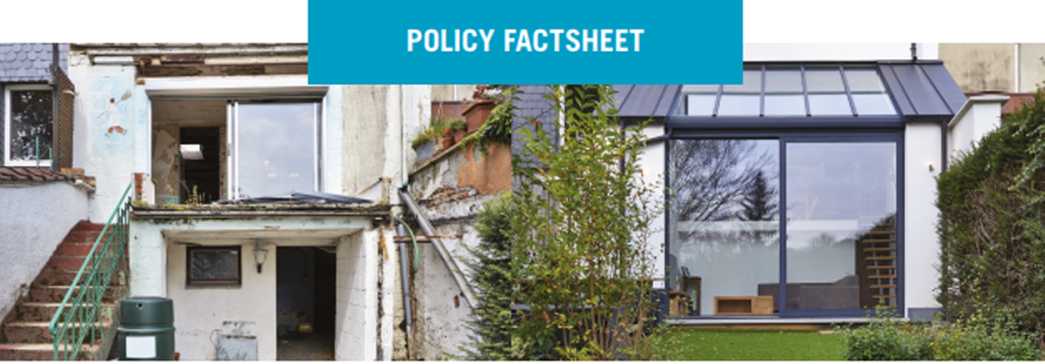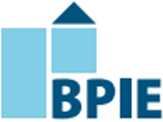4086815956

BUILDING RENOVATION PASSPORTS: CONSUMER’S JOURNEY TO A BETTER HOME
What is a Building Renovation Passport?
A Building Renovation Passport (BRP) is a document - in electronic or paper format - outlining a long-term (up to 15-20 years) step-by-step renovation roadmap to achieve deep renovation for a specific building. It is designed to reflect the (changing) situation of the owner or occupier. The BRP also addresses the complexity of renovation works and ensures coordination throughout the different stages.
Increasing the current EU annual renovation ratę from 1.2% to 3% is essential to ensure a highly-efficient and fully decarbonised building stock by 2050. In the EU, over 75% of the current building stock is not energy efficient and about 75% to 85% will still be in use in 2050’. lmproving the depth and ratę of renovation is essential to meet the Paris agreement goals and should be at the centre of the revision of the Energy Performance of Buildings Directhre (EPBD). which currently does not promote effective policies to drive renovation. BRPs can fasten deep renovation by providing personalised renovation roadmaps to building owners.
POLICY RECOMMENDATIONS



Artide 2a, of the revised EPBD, on long-term renovation strategies should require Member States to design policies and measures that result in the deep renovation of the building stock. such as the BRPs. Combined with other measures, like minimum energy performance requirements for commercial and public buildings and trigger points to prioritise the renovation of the worst-performing buildings, individual Building Renovation Passports can encourage deep renovation.
Artide 10 of the revised EPBD: BRPs should be included in the list of instruments Member States can use to link financial measures with the energy savings achieved through renovation.
Artide 20 of the revised EPBD: The BRP is an effective and transparent advisory tool that should be available to all consumers. By proposing measures for staged deep renovation and avoiding technology lock-ins, the BRP can empower citizens to make the right renovation choices. Detailed information for building owners and tenants about the tools available in their country or region to improve the energy performance of buildings will contribute to successfully deliver long-term renovation strategies.

' knp«t Aiwiuiiur* ta !►» o< Ihu Erm^y Purfwrruncii oieuildr^i OiiMtr* SWD0OKH14
Wyszukiwarka
Podobne podstrony:
infographic?itable eMail Marketing Avenue5 Step Journey to Building a Mailing ListSoftware Or Servic
592 UN DEBAT : LES MENTALITES COLLECTIVES 2 The sea journey to Constantinople, hazardous though
Touted as the next big transformation in the way users search, consume and share Information, Alchet
paulrome Paul s Journey To RomęBlack Sea Corsical (Rom i T / Neapolis Tyrrhenian S
REMARKABLE JOURNEYS TO TOMORROW-A COLLECTION OF THE PAST YEAR S FINEST SHORT-FORM SFYEAR S
75728 Najemnik #5 Pieklo A J Quinnell AUTHOR OF IHf PiRffCI KUl ONF M A N ’ S JOURNEY TO BURY TH
2. 3. To gtve ts bctter than to recełve Glvlng is better than receiving To see is to
page5 (21) Focl Consumption according to DIN 70030 7.5 liters per 100 km 37.5 m.p.
wavm CONNECT TO BETTERhauraton?AINFIX-CLEANS hauraton hauraton RECYFIX HICAP"G Rainwi
values when it becomes Iow. This process typically consumes about 3% to 5% of the total gas transpor
00365 m2e8679c0886ed1125ed5bcd4590b4c 369 Regret Indices and Capability Quantification a power of 2
488 The main thesis is that morę information relevant to the shareholders is revealed on the website
więcej podobnych podstron